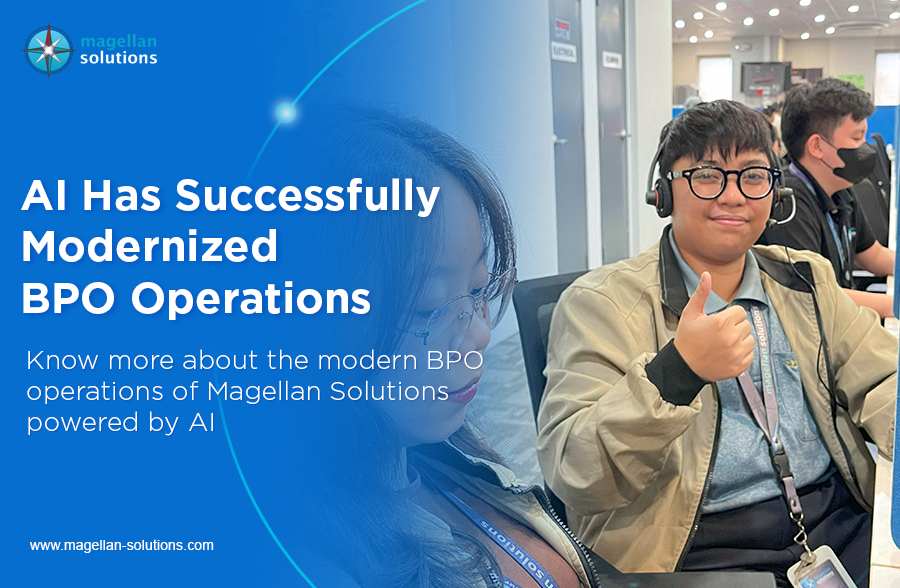Schedule a FREE call with our outsourcing expert now and get a precise quotation that meets your requirements. Don't wait - get started today!
The Philippines has been a favorite for business process outsourcing for many years. So, why are businesses outsource to shared service company in the Philippines? Call centers crowd the metropolitan, creating jobs for millions of Filipinos. Filipinos have earned a spot for providing excellent BPO services. No wonder Western countries like the United States and Australia chose to outsource customer services and technical support to them.
The BPO industry is a significant contributor to the economy, with nearly $30 billion in annual contributions, according to Nexford University. The influx of BPOs increases yearly, extending from large contact centers to home-based BPOs. Besides BPO, the Philippines is the best option for shared services. This article will discuss in detail why this is so.
What Is a Shared Service Center?
Shared service centers are independent business units of processes, technologies, and people. They perform multiple functions, including human resources, information technology (IT), purchasing, legal, compliance, customer service, and other operational tasks. With shared services, expertise and resources are shared within a company.
Different Delivery Models for Shared Services Centers
Enterprises have multiple options for delivering their shared services endeavor:
- Internal vs. External: An internal SSC is one owned and operated by the parent company. An external SSC is provided by a third-party outsourcing specialist.
- Onshore vs. Offshore: Onshore SSCs are located within the same country as the parent company, while an offshore SSC operates in a different country and usually comes with the advantages of lower costs and greater access to a wider talent pool.
- Hybrid Model: Enterprises might use a hybrid setup, mixing and matching elements of the aforementioned groups (internal and external, onshore and offshore) in ways that best meet their needs.
Is a Shared Service Center a BPO?
People often compare Shared Service Centers (SSCs) and Business Process Outsourcing (BPOs) and even refer to them as one, but they are different. While both offer support services to help businesses achieve efficiency at a reduced cost, they utilize resources differently.
What is the Difference Between Shared Service and BPO?
A Shared Service Center (SSC) is a company’s internal department or team that consolidates common tasks across multiple departments to reduce costs and avoid redundancy. In contrast, Business Process Outsourcing (BPO) is when a third-party provider is hired to handle specific internal tasks, often due to a lack of internal resources.
What is the role of Shared Service?
Shared Services are vital in promoting a unified and standardized approach to support functions within a company. This can lead to improved workflow, increased employee productivity, and more efficient management through consolidated processes.
Benefits of Using Shared Services Centers
Shared service centers can deliver multiple benefits for businesses:
- Greater Efficiency: By bringing common processes together into a central location, SSCs remove redundant effort, streamline operations, and enhance efficiency across multiple business units.
- Standardization: Shared services centers layer in consistency by using the same processes and procedures across the organization, which leads to improved quality and compliance.
- Cost Savings: Shared services models result in significant cost savings from economies of scale, sharing of resources, and the potential to take advantage of lower labor costs in offshore locations.
- Greater Focus on Core Capabilities: By outsourcing administrative and operational tasks to an SSC, the business units can focus time and effort on their core capabilities, driving growth and innovation.
Why is the Philippines the Best Option?
The Philippines is one of Asia’s preferred offshore shared service hubs. We have the top shared services in the Philippines. Businesses worldwide offshore their internal function remotely in the country because of larger talent pools and other reasons.
Below are the good reasons why shared services company in the Philippines is the best option:
-
Reasonable Cost For High-Quality Services
Shared service centers in the Philippines provide a cost-effective solution for businesses to achieve their goals while maintaining quality without investing heavily in labor, equipment, and technologies. Filipinos are dependable when consolidating systems, redefining processes, and using advanced technologies. Therefore, they help drive performance and service levels.
-
Filipinos Are Good English Speakers
Since the colonial ages, Filipinos have been culturally influenced by Western countries, especially the United States. The country is rich in high-skilled, world-class talents with impressive work ethics, capable of multi-tasking and using different tech tools. For this reason, they contribute largely to the success of global clients’ businesses.
-
Filipinos Are Hardworking and Professional
Filipinos are hardworking people. They train hard to learn how to carry out the tasks companies entrusted to them. Learning is relatively easy because they’re naturally tech-savvy and digitally skilled.
Filipino workers in a shared service center skillfully integrate centralized functions of large enterprises and organizations. They excel in managing back-office responsibilities and supporting business subsidiaries with non-core activities. Hence, they’re a big help in business units, allowing them to focus time, effort, and resources on the core and goals to attain greater success.
-
Excellent Services
The third-party shared service centers can assist companies in penetrating the Philippine market. They make the process seamless, from setting requirements to hiring top talents. Filipino talent hiring follows strict screening processes based on international industry standards.
Shared service centers can help businesses across all business aspects. For instance, local shared service providers help clients register their businesses with government agencies and the local government unit (LGU). They identify the appropriate investment vehicle and business structure and ensure compliance with existing business requirements.
Localizing business strategies involves creating processes and methods to boost performance and optimize business results. Aligning these processes with the client’s business models and management is critical, which requires shared services to attain business efficiency. Filipino managers ensure all of these happen with the highest efficiency and best results.
-
Supportive Government
The Philippine government actively encourages global businesses to invest in the country by offering a well-educated talent pool. Strategically placed mechanisms are in place for BPO and shared service centers to thrive and grow, benefiting the Philippine workforce.
Several Philippine laws were passed to support BPO and shared services in the country. The Republic Act 10844 allows BPOs and outsourcing providers to use local ICT resources with the agency’s support.
The national government wants to ensure Filipino workers continue arriving for the offshoring and outsourcing sector. BPO and shared service employers recognize the value of telecommuting programs and continue to provide them, giving Filipino workers a fair advantage.
Challenges of Implementing Shared Service Centers
While shared service centers offer numerous benefits, shared services companies in the Philippines should be mindful of the challenges they face in implementation. Here are a few key concerns:
- Accountability to Business Units: It can be a challenge to ensure that a shared services center remains responsive and accountable to the specific needs of business units. Clear lines of communication, regular feedback, and service level agreements (SLAs) to establish responsibilities and requirements are vital to keeping a positive working dynamic.
- Managing Cultural Differences: Staff members in different geographic locations or business units may have different cultural norms that must be reconciled. Strong leadership that remains sensitive to potential cultural nuances is critical to overcoming potential obstacles and creating a cohesive working environment.
- Change Management: Implementing a shared services center typically means significant changes to existing procedures. Employees may be resistant to learning new systems and protocols, particularly if they’ve been performing the same processes for years. Companies should be proactive with change management, making transparency, system training, and 24/7 system support available to ease the transition.
Conclusion
Undoubtedly, the Philippines is the best option for shared services. Filipinos are well-educated, providing high-quality output at a reasonable cost. The national government supports BPO and shared service providers by developing and amending relevant laws to protect them and Filipino workers.
Magellan Solutions is a reliable partner that provides shared services in the Philippines and tailored outsourcing solutions for your business. With 18 years of experience in the industry, we have successfully assisted thousands of small businesses in achieving their goals. You can confidently trust our services; our ISO certification and HIPAA compliance prove our commitment to delivering the highest standards. Contact us now to learn more about shared services and how we can assist you in growing your business.
















